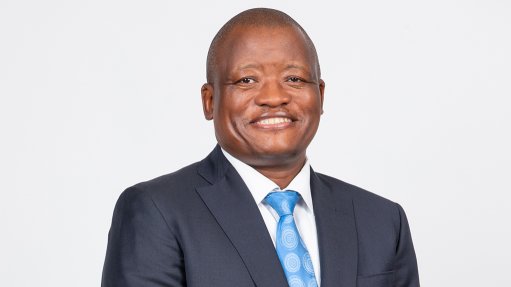
Standard Bank South Africa CEO Lungisa Fuzile
Standard Bank reports that it has financed 400 MW of distributed generation since government’s recent decision to allow utility scale projects of any size to proceed without a licence even when wheeling electricity through the grid. In addition, its pipeline of such projects for the coming 12 months has increased to 4 GW, including some 1 GW-worth of capacity that is expected to reach financial close within the coming six months.
Corporate & Investment Banking (CIB) head Zaid Moola described the reform to Schedule 2 of the Electricity Regulation Act, which initially removed the licensing requirement for projects below 100 MW in 2021 and later lifted the threshold altogether, as a “proper game changer”.
In a briefing on the bank’s renewables activities, Moola indicated that the growth in the distributed-generation market had been rapid, noting that the pipeline was equivalent to what Standard Bank CIB had funded between 2011 and 2023 as a consequence of the country’s public procurement programmes.
Over that period, the bank provided some R50-billion in funding in support of nearly 4 GW of capacity. This arose from the successive renewables bid windows and the risk mitigation round, when the bank helped finance Scatec’s hybrid 540 MW solar, 1 140 MWh battery storage project that reportedly successfully connected to the grid in late September.
Moola said the initial distributed projects were primarily linked with clients in the mining and metals sectors but that there was now also growing interest from other less energy intensive sectors.
Standard Bank South Africa CEO Lungisa Fuzile said he expected pending legislative amendments associated with the Electricity Regulation Amendment Bill, on which the Portfolio Committee on Mineral Resources and Energy was currently holding public hearings, could add further impetus to private investment in generation.
The legislation, Fuzile argued, was about ensuring that the legal and regulatory frameworks were “calibrated” such as to make such investments more “durable and functional over the long term”.
The bank would continue to support both private and public procurement, with Moola anticipating that future public rounds could be structured to ensure a greater balance between wind and solar, given the dominance of solar photovoltaic investments by the private sector.
Likewise, battery storage capacity could also be a feature of future public procurement, with the first projects arising from the 513 MW/2 052 MWh storage tender expected to proceed soon and to be followed by a second even larger bidding round.
The bank would also continue to monitor developments on possible alternative grid financing, including the potential for public-private partnerships, given that investment was required to unlock further renewables generation.
Along with the wind bidders that participated in the sixth bid window of government’s renewables programme, Standard Bank lost out as it had moved to partner with several wind developers, none of which advanced to preferred-bidder status owing to Eskom’s claims that the grid capacity in the Western, Eastern and Northern Cape provinces had been absorbed.
Meanwhile, the bank, which is under pressure owing to its ongoing support of fossil fuels, reports that it provided R30-billion in financing for new renewable energy power plants across the board in the last financial year, including in support of residential and business capacity.
“In 2022, Standard Bank financed R5 in renewable energy for every R1 lent to non-renewable power, indicating a strong commitment to renewable energy financing.”
Some R1.6-billion had been disbursed to businesses in support of both small and large installations over the past four years, while its total book size in support of individual households investing in renewables was expected to stand at R3-billion by year-end.